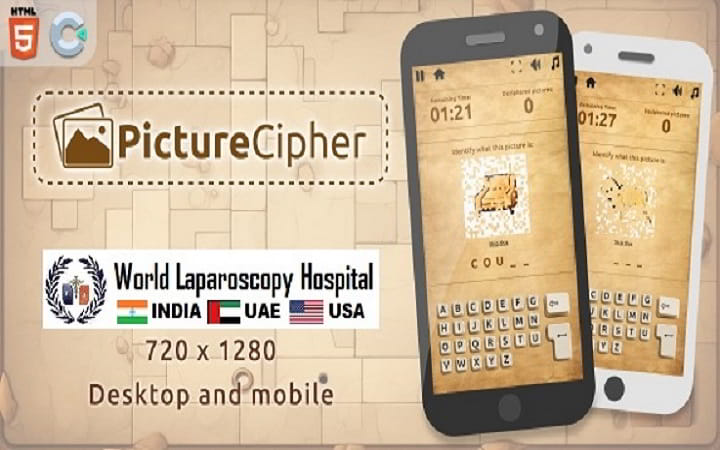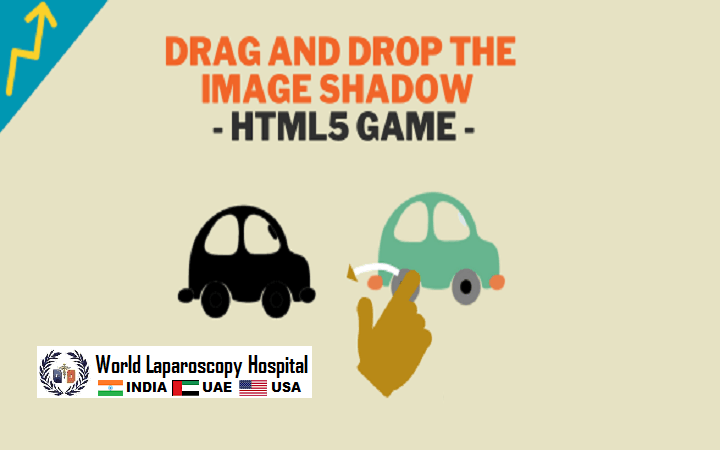


Feeling stressed? Play Now Real Video Games Below!

Can video games be used to predict or improve laparoscopic skills?
Performance of laparoscopic surgery requires adequate hand-eye coordination. Video games are an effective way to judge one's hand-eye coordination, and practicing these games may improve one's skills. There are hundreds of article published and prooved that video game increases the skill of laparoscopic surgeon. We have conducted many research to see the effect of different type of game to see its effect on laparoscopic skill of surgeon. Our goal was to see if there is a correlation between skill in video games and skill in laparoscopy. Also, we have seen that practicing video games can improve one's laparoscopic skills.
According to a study published in the February edition of Archives of Surgery, Surgeons who regularly play video games are generally more skilled at performing laparoscopic surgery. Laparoscopy involves controlling surgical instruments through a small incision or body opening, where the Surgeon is guided by a TV screen. The study found that regular gamers made fewer errors, performed faster and performed better in a surgical skills test. According to a very small, very preliminary study, playing certain video games on the Nintendo Wii helps surgical residents to hone their fine motor skills and improve their performance on a serious surgery simulator.
Video game aptitude appears to predict the level of laparoscopic skill in the novice surgeon. In our study, practicing video games did improve one's laparoscopic skill significantly and more practice time could prove games to be more helpful.
A simple video game helps these docs with a slightly more complicated one. But bear with us here because the more sophisticated simulator is the sort of thing that's used right now to help doctors do a better job on keyhole surgery using tiny instruments outfitted with video cameras.
Improvements in simulator performance didn't come from just any Wii (see image), or any game. Marble Mania is good, for example. Tennis (astonishingly fun to play on the Wii, which uses a motion-sensitive wireless control) isn't so helpful. The key is to have subtle hand movements," Kanav Kahol one of the authors of the study, told the Health Blog. You can't hit a tennis swing and expect to become a better surgeon. You need fine motor control."
33 doctors from Beth Israel Medical Center in New York participated in the study. The 9 doctors that had at some time played video games at least 3 hours per week made 37% less errors than 15 doctors who had never played video games. They also performed 27% faster and scored 42% better in a surgical skills test.
"It was surprising that past commercial video game play was such a strong predictor of advanced surgical skills," said Iowa State University psychology professor Douglas Gentile. Dr. James Rosser of Beth Israel, said, "Video games may be a practical teaching tool to help train surgeons," but the authors don't recommend that this research should be used to allow younger children and students to play games too often.
"Parents should not see this study as beneficial if their child is playing video games for over an hour a day," Gentile said. "Spending that much time playing video games is not going to help their child's chances of getting into medical school." Video games have been linked to aggressiveness, poor grades and are often used as a substitute for proper exercise.
Kahol, a biomedical informatics expert affiliated with Arizona State and a hospital chain called Banner Health, worked with Marshall Smith, a Banner surgeon, to see if playing the Wii (Wii-ing?) improved residents' scores on a standard simulator for minimally invasive, or laparoscopic, surgery.
So they bought a standard golf-club add on for the Wii ("It was like 10 bucks," Kahol said) then cut off most of the golf club and added a laparoscopic probe (their creation is shown in the picture, above).
Out of a group of 16 residents, eight were assigned to play the Wii (Marble Mania and a suite of games called Wii Play), with the specially-rigged controller. The other eight didn't get to play. Then all 16 did a simulated laparoscopic procedure (something having to do with a simulated gallbladder).
The ones who had played the Wii showed 48% more improvement on the procedure than those who hadn't, according to a standard score that measures performance on the simulation, Kahol said. They plan to present the results at the Medicine Meets Virtual Reality conference in a couple weeks.
Next, Kahol and Smith plan to develop a full-blown surgery simulator for the Wii. Among other things, it would allow residents, forced by work-hour caps to spend more time outside the hospital, to practice surgery while they're at home.
In the meantime at Smith's hospital there's a Wii in the room where residents take cat naps while they're on call. We asked if the residents get competitive about the Wii. They're surgery residents, what do you expect?" Smith said.
Video games have become extensively integrated into popular culture. Anecdotal observations of young surgeons suggest that video game play contributes to performance excellence in laparoscopic surgery. Training benefits for surgeons who play video games should be quantifiable. Hypothesis: There is a potential link between video game play and laparoscopic surgical skill and suturing. Design: Cross-sectional analysis of the performance of surgical residents and attending physicians participating in the Rosser Top Gun Laparoscopic Skills and Suturing Program (Top Gun). Three different video game exercises were performed, and surveys were completed to assess past experience with video games and current level of play, and each subject's level of surgical training, number of laparoscopic cases performed, and number of years in medical practice. Setting: Academic medical center and surgical training program. Participants: Thirty-three residents and attending physicians participating in Top Gun from May 10 to August 24, 2002. Main Outcome Measures: The primary outcome measures were compared between participants' laparoscopic skills and suturing capability, video game scores, and video game experience. Results: Past video game play in excess of 3 h/wk correlated with 37% fewer errors (P < .02) and 27% faster completion (P < .03). Overall Top Gun score (time and errors) was 33% better (P < .005) for video game players and 42% better (P <. 0 1) if they played more than 3 h/wk. Current video game players made 32% fewer errors (P = .04), performed 24% faster (P < .04), and scored 26% better overall (time and errors) (P < .005) than their non-playing colleagues. When comparing demonstrated video gaming skills, those in the top tertile made 47% fewer errors, performed 39% faster, and scored 41% better (P < .001 for all) on the overall Top Gun score. Regression analysis also indicated that video game skill and past video game experience are significant predictors of demonstrated laparoscopic skills. Conclusions: Video game skill correlates with laparoscopic surgical skills. Training curricula that include video games may help thin the technical interface between surgeons and screen-mediated applications, such as laparoscopic surgery. Video games may be a practical teaching tool to help train surgeons
Scramble your stethoscope below and repair it again. Be a good surgeon! Please remember to click scramble first to start game.
A Good reflex is necessary for surgeon please try your reflex with this simple game.
Test your Response time Doctor!
Past experience playing video games, as wee as current video game skill, may translate into increased dexterity and proficiency at laparoscopic surgery, according to a January 14, 2004, news release from the National Institute on Media and the Family. Researchers from Beth Israel Hospital, New York, theorize that video game playing may develop neural pathways that Later are available for use in different arenas, including laparoscopic surgery.
Thirty-three participants, including 12 physicians and 21 medical school residents, participated in a study designed around a laparoscopic skills and suturing teaching program. In addition to participating in the program, subjects completed three video game tasks that tested fine motor skills, reaction time, eye-hand coordination, targeting, nondominant hand emphasis, and two-dimensional depth perception compensation--skills similar to those required to successfully advance in laparoscopy. Participants then were surveyed to assess past experience with video games, as well as current level of play, level of laparoscopic training, number of laparoscopic cases performed, and number of years in medical practice.



















